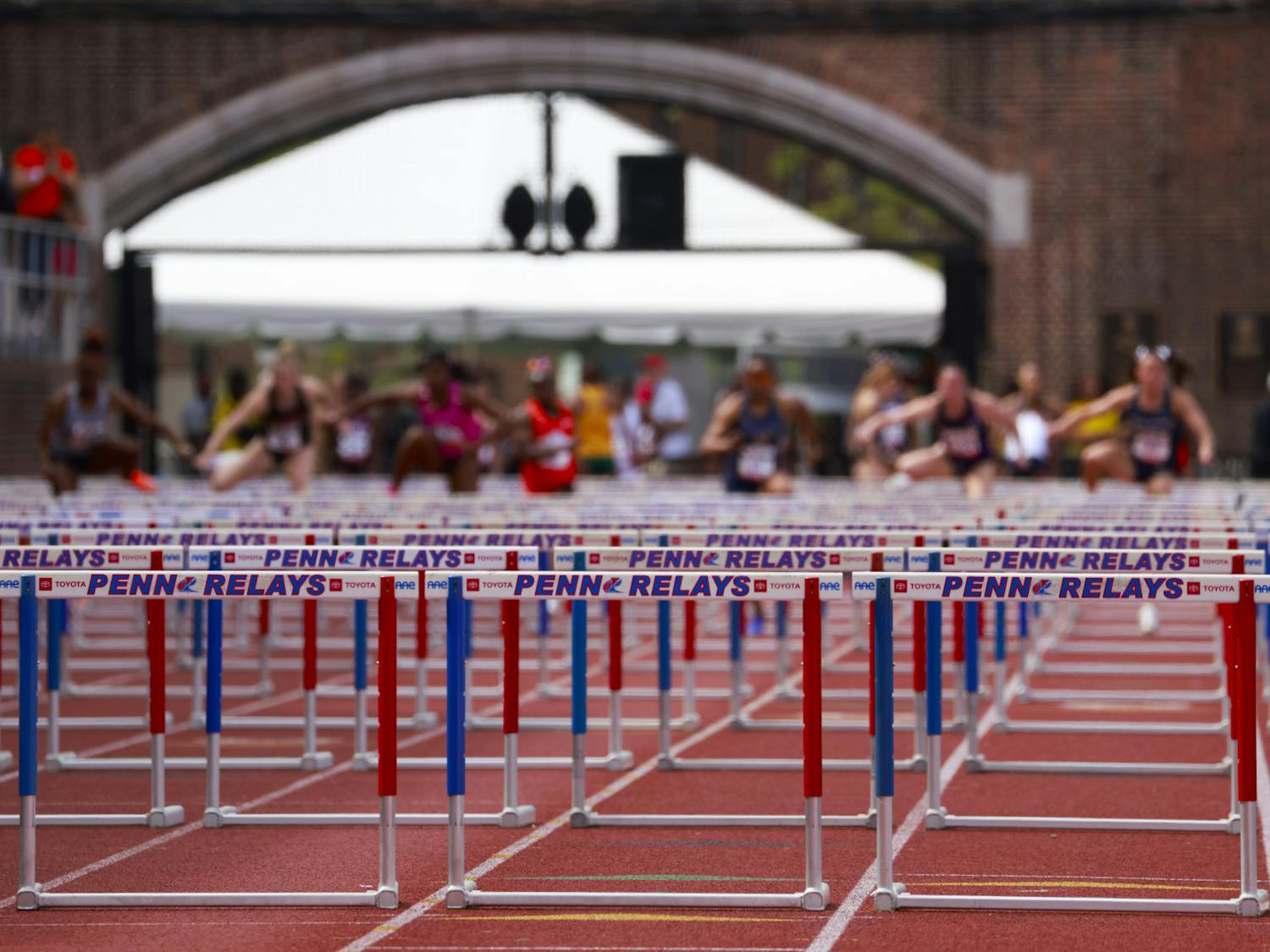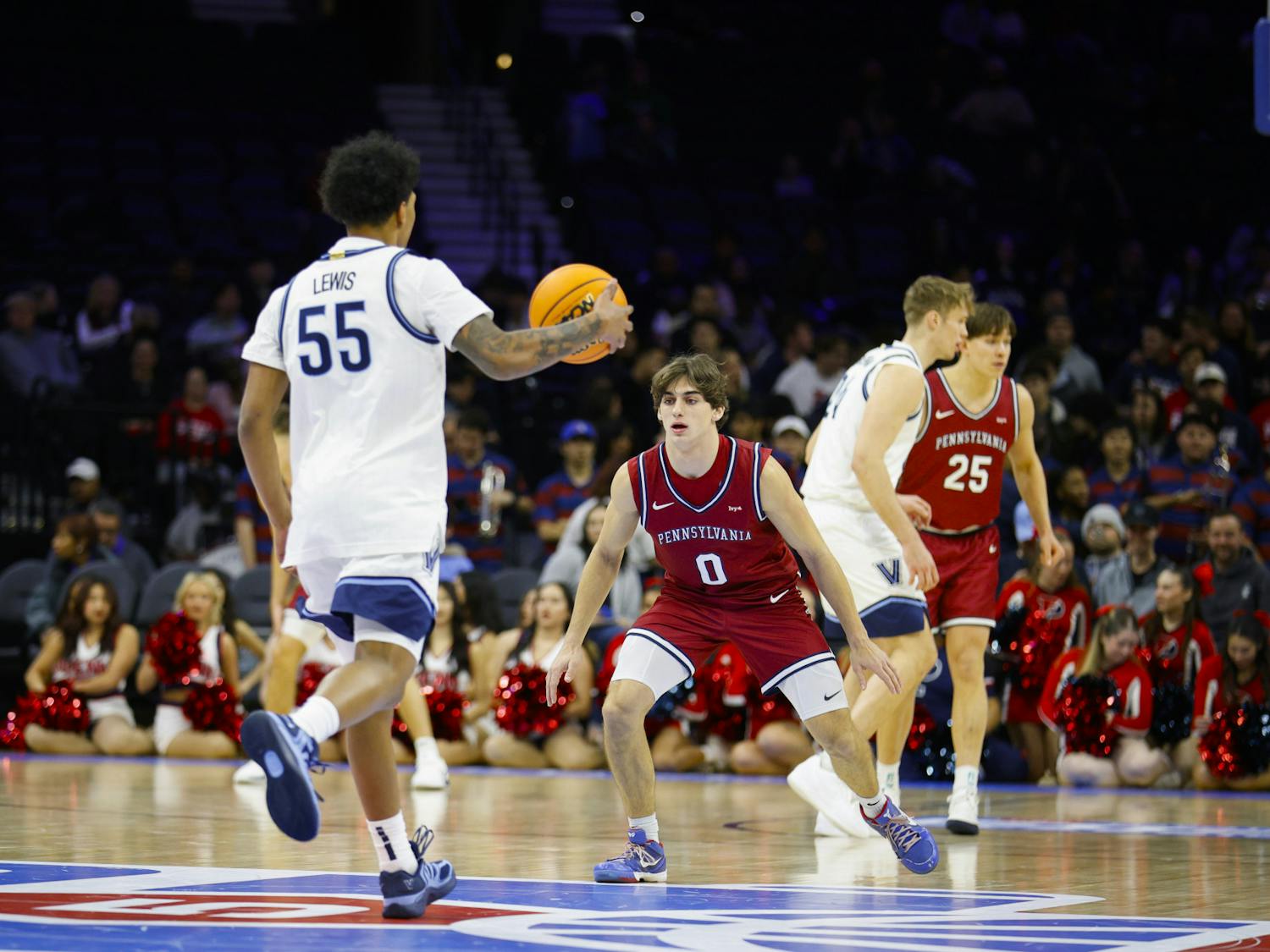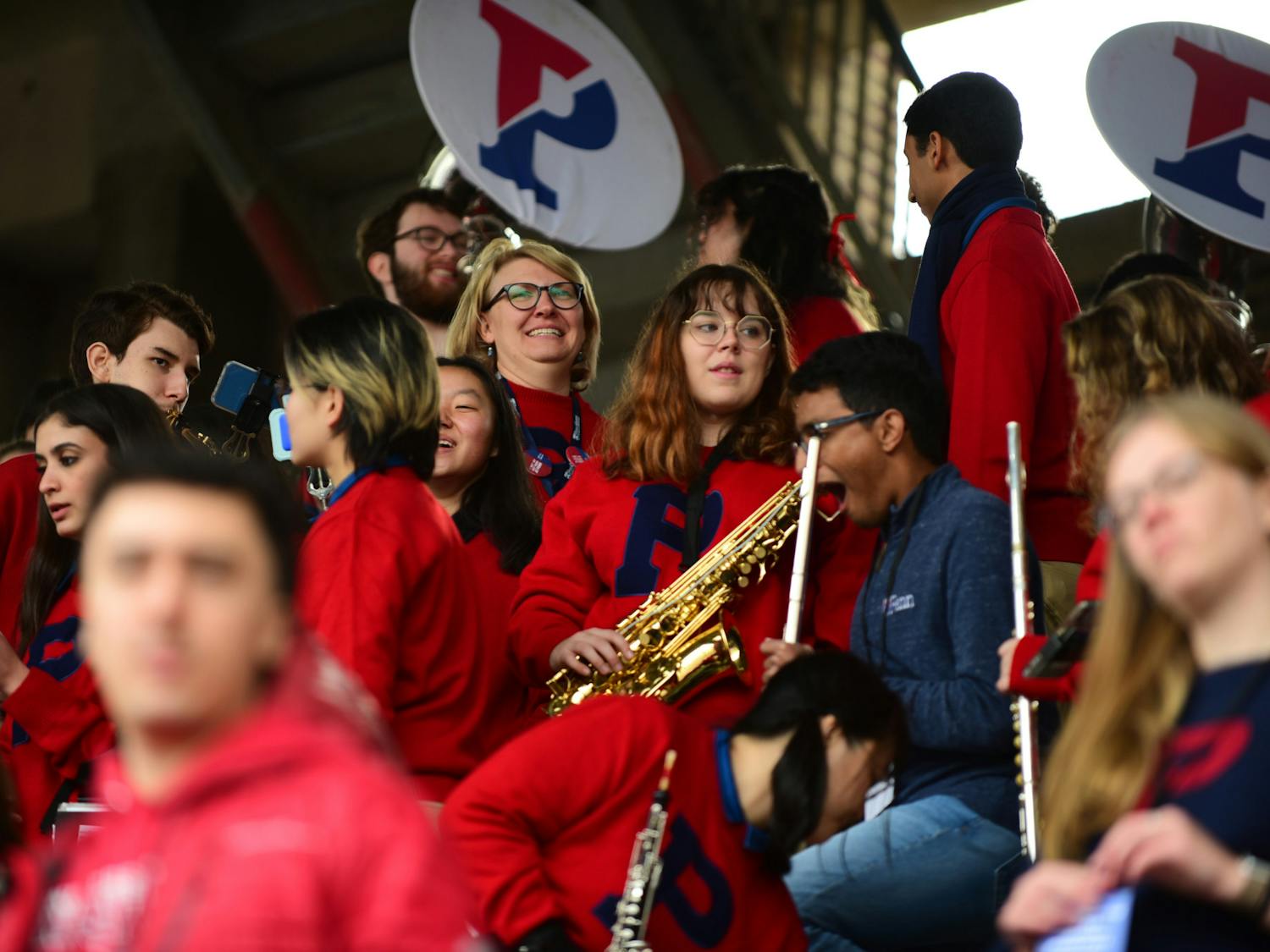The release of the Ivy League basketball polls this week is a bit like the sight of a robin in early March -- it's a sign that the season is really changing. With nine days left until tipoff, all of Penn's fall teams have two or fewer games remaining in their regular seasons. The Penn volleyball team is already done with its regular season, its best since 1982. The Quakers have the No. 2 seed at this weekend's Ivy Tournament and reason to be optimistic. The Penn sprint football team has wrapped up at least a tie for the Collegiate Sprint Football League title, and with a win this Friday can put a bow on its first-ever undefeated season. And the Penn football team controls its own destiny, standing in a three-way tie for the Ivy League lead with two games left. That's the bright side of this fall's Penn athletic scene. For three other teams, the only question is what has gone so wrong this fall to derail their hopes of contention and glory? The wrong side of the tracks at Penn this year has clearly been to the east of the R1 line, at Rhodes Field. There, the Penn women's soccer team struggled to a .500 record, and the Penn men's soccer team has continued its Ivy League dry spell, going 0-5-1 in Ancient Eight play, with just one game remaining on the slate, a winnable contest against Ivy also-ran Harvard. The male Quakers are perhaps the most confusing team of all. Rudy Fuller is one of the more likable coaches at Penn, and he described his team before the season as "the most talented Penn has had in my time here." Before the season, I wrote, and the Quakers felt, that they should "start to contend" in the Ivy League this year. But for the third consecutive season, the Quakers have floundered. They have not won in a month, and have been shut out in each of their last three league games. If Penn does not defeat Harvard on Saturday and plunges to 0-18-3 in Ivy play under Fuller's leadership, maybe it's time to start looking in another direction. The Penn women's soccer team is more than used to coaching changes, and that has been part of the problem for the Quakers as they have tried to follow up on last year's run to the NCAA Tournament. With a third coach in three years and the loss of some talented seniors, it was never going to be easy to repeat their success. Then Penn goalie Katherine Hunt, who at one point last year strung together five straight shutouts, proved human. Then the injury bug hit, most notably with senior leader Kelli Toland's stress reaction in her right ankle. In her absence, the team's performance and morale suffered. The next thing the Quakers knew, they were 8-8-1, sixth in the Ivy League and headed for the ECAC Tournament this weekend instead of returning to the NCAA Tournament. It's certainly understandable, and the Penn women are sure to be back with a vengeance next season. The same might not be true for the Penn field hockey team, which will return nearly its entire squad next season, including almost all of its top players. Penn's field hockey program is not just coming off of one down year, though. The Quakers were 1-6 in Ivy play last year, and wrapped up this season with losses in all seven of their Ivy contests. Since Penn won back-to-back Ivy titles in 1992 and 1993, the only winner of the league has been Princeton. The Quakers' problems seem to lie in their limited recruiting. Penn's roster has just one player who does not hail from the New York, Philadelphia or Washington metropolitan area. Nicola Francis, a native of Bermuda, attended Phillips Exeter. Other teams around the league have not just expanded their recruiting to a national level -- they've gone global. Princeton has two players from the Netherlands, one from Hong Kong, one from Germany and Americans coming from Missouri to Massachusetts. The story is the same at second-place Harvard, and throughout the ranks of the upwardly mobile teams of the Ivy League. If she hopes to bring a winning field hockey tradition back to Penn, coach Val Cloud will have to build her program from more than just the Mid-Atlantic. Of the three teams that have struggled this fall, this challenge may be the most daunting, but all three squads are definitely capable of returning to the top of the Ivy League.
The Daily Pennsylvanian is an independent, student-run newspaper. Please consider making a donation to support the coverage that shapes the University. Your generosity ensures a future of strong journalism at Penn.
DonateMore Like This
Penn Relays announced as part of inaugural USATF Tour series
By
Ellie Clark
·
3 hours ago
The fans and found family behind the Penn Band
By
Ellie Clark
·
5 hours ago








